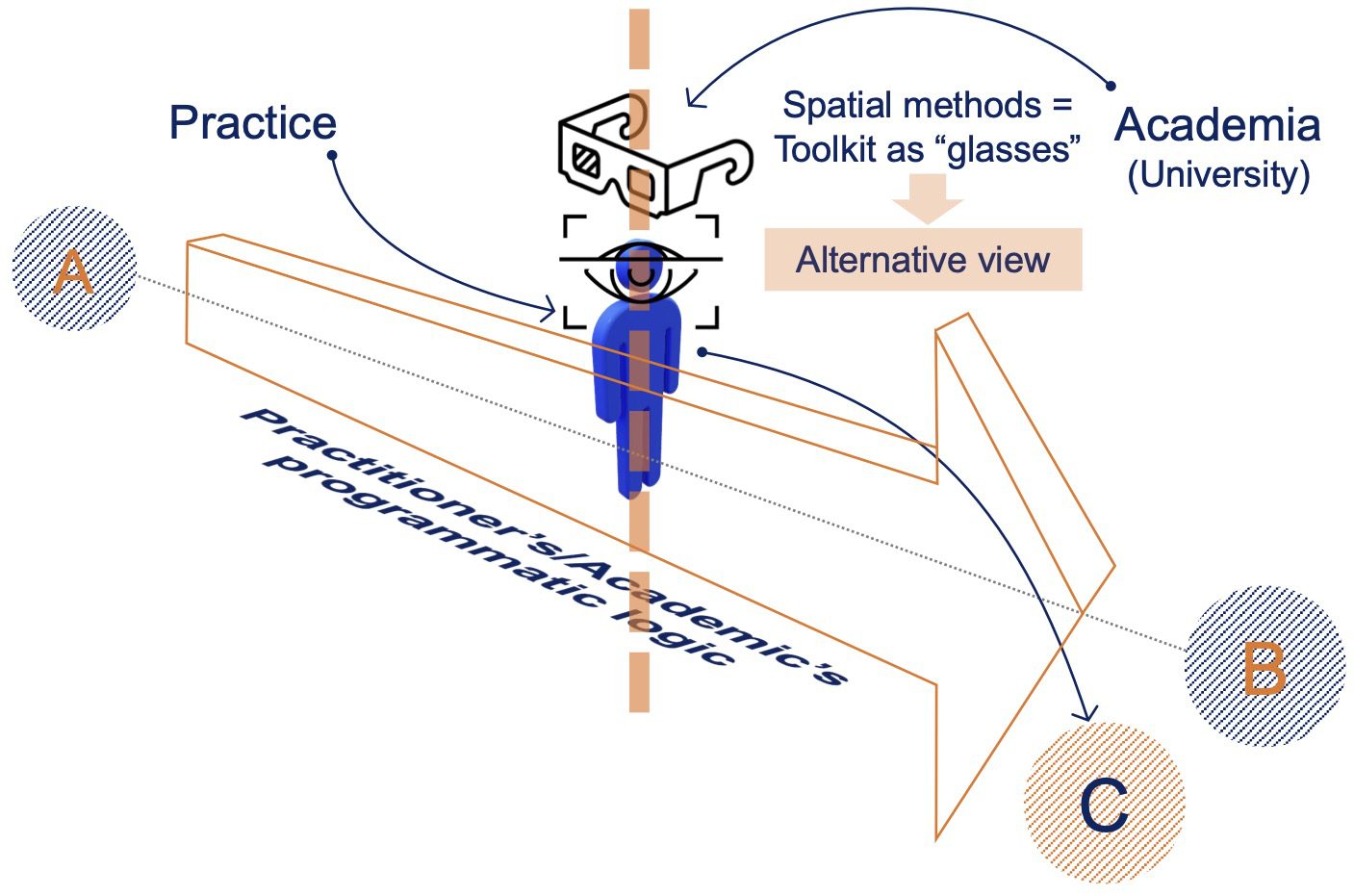SMUS emphasises the science-policy interface and explores alternative ways for researchers-scientists to collaborate with practitioners and other societal actors in development cooperation. This is furthered through transdisciplinary imagination and practice-led research (concerned with the intrinsic nature of a practice).
This approach requires those involved in academic-scientific research and practical professional work to revisit their attitudes and conventions. Likewise, to harness the input of citizens, scientists and practitioners alike must rethink the participatory instances they have traditionally relied on to advance policymaking. By merging various forms of knowledge production, modes of inquiry and worldviews, a coherent knowledge base to tackle wicked urban problems emerges.
Action 4 – Exchange (2020 -2024)
Action 4’s Practical-Empirical Implementation Projects (PEIPs) were meant to put methods into practice. By engaging locally-based and engaged in development cooperation extramural actors (public servants, practitioners or NGOs/CBOs members), the PEIPs sought to re-assess SDG #11’s targets and thus develop alternative, topical and innovative policies as well as design proposals. To this end, participants were presented with a combination of methods from social and design disciplines in the form of a toolkit.
Each PEIP then used the toolkit to explore phenomena connected to various urban sustainability challenges. While certain aspects proved successful (e.g. furthering a ‘methodological dialogue’ between researchers and practitioners), difficulties in breaking through long-standing academic stringencies were faced too (in particular, the issue of legitimisation about the ‘proper’ use of research methods and tools). Consequently, testing method combinations in institutional practical domains achieved limited influence in the policymaking arena. In Phase II, this avenue will be further pursued.
-
Figure 1: An invitation to (transdisciplinary) teams of practitioners and academics: An alternative view of professional-practical issues via the spatial-method “glasses” (SMUS Action 4 Team)







